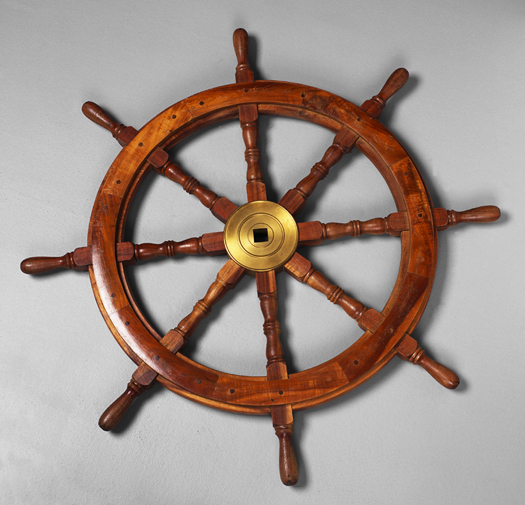Despite security, the number of stowaways or the number of incidents are not reducing; nd it is seafarers who have to cope with the extra work, delay, uncertainty and possible violence. So says The Nautical Institute which launched Maritime Security handbook: stowaways by sea. The book by Steve Jones is aimed at helping people who have to deal with stowaways by giving advice on the preparation and training that is needed both onboard and ashore.
The handbook gives guidance on making a vessel secure against stowaways, managing any that have succeeded in getting on board, collecting the necessary evidence and organising the repatriation process. It includes an explanation of who stows away and why, how trading patterns affect risk, the responsibilities of all parties involved in a stowaway incident and the importance of reporting.
Author Steven Jones MSc BSc (Hons) MNI said: “Stowaways pose significant security, safety, commercial and liability issues for shipping. The problem is a serious one and shows no sign of abating.” He added that as Maritime Director of the Security Association for the Maritime Industry (SAMI), his primary focus is on people. He aims, through the book to make available best practice on protecting vessels, training, and provision of useable and timely intelligence to all, whether they are onboard vessels or ashore.
He pointed out that stowaways are one of the threats that must be assessed and planned for in the Ship Security Plan (SSP) and in the provision by owners and operators of training and specific instructions and procedures. This will ensure that crews can react to a difficult problem with “understanding, compassion and authority” while protecting themselves and their vessel. Besides a decade of onboard experience as a navigation officer, including dealing with stowaways and instigating intensive searching, Steven Jones has advised numerous shipping companies on security planning and has worked for insurers, publishers and professional bodies.
At the launch, the Institute’s Vice-President, Captain Allen Brink FNI, said that many at sea, including himself, had experience of dealing with stowaways and it was essential that the Institute’s information and advice on the subject was practical and up to date. “There may be a lot of information out there on stowaways, particularly from P&I clubs. However, in our work at The Nautical Institute we like to relate that information to practical measures mariners can take to help towards their own security,” he said. As an NGO at the IMO, he added, the Institute is able to bring the realities of dealing with stowaways to the world’s attention.
Captain Nicholas Cooper MNM FNI, past President of the Institute, shared his experience of having his vessel and crew held hostage by stowaways – something “no amount of training, drills and SMS procedures prepares you for.”
A recent IMO initiative focusing on the top 12 embarkation ports for stowaways in West and Central Africa was described by the organisation’s Head of Facilitation Section, Maritime Safety Division, Julian Abril. The regional seminar on stowaways held in Abidjan, Côte d’Ivoire on 25-27 March called for port facilities to strengthen their capacities for surveillance and access control.
In a foreword to the handbook, Giles Noakes, Chief Maritime Security Officer at BIMCO, pointed out that “resolution of a stowaway case can include a considerable burden in terms of discomfort and sometimes even threat to the crew, administrative hassle, and the risk of fines or sanctions from port authorities.” He commended the handbook as “timely and prescient” and for providing “sound and up-to-date best practice and guidance”.
The book was launched at a seminar held with a SAMI workshop on port security.
Maritime Security handbook: stowaways by sea is the third book in The Nautical Institute’s maritime security suite and a companion volume to Maritime Security – a practical guide published in 2012 and Maritime Security handbook: coping with piracy published in 2013.
Maritime Security handbook: stowaways by sea is available from The Nautical Institute, price: £20. ISBN: 978 1 906915 47 6. Visit http://www.nautinst.org/pubs.
The three books in the security series together cost £65.










